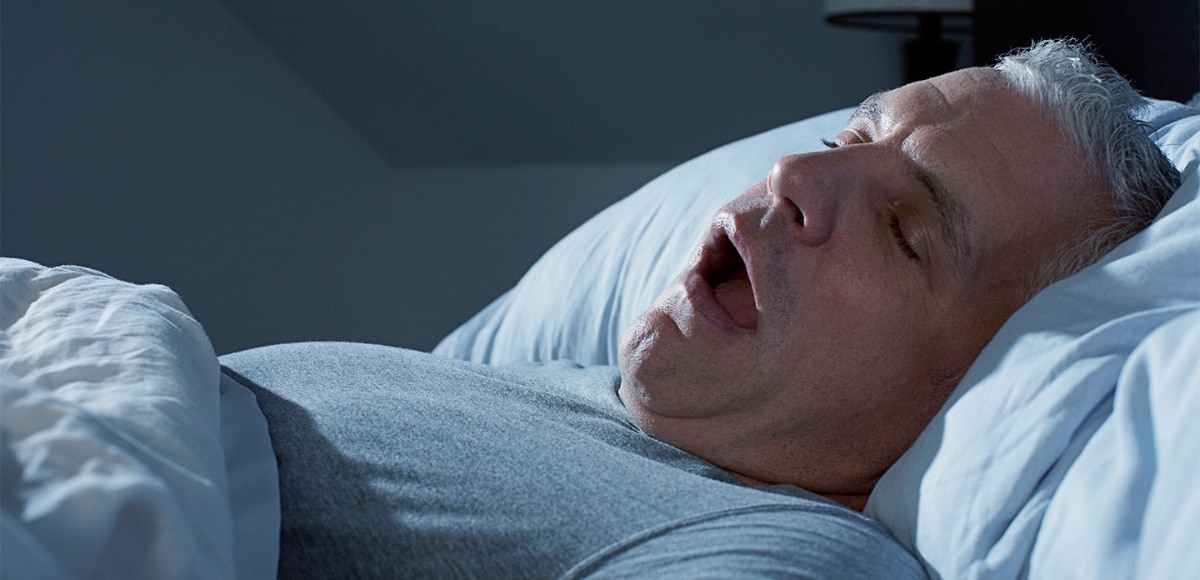
Do you often wake up tired and groggy, like you haven’t slept? It’s time to find out what’s keeping you up at night: sleep apnea. This sneaky sleep disease affects millions worldwide, but many don’t even know they have it. But don’t worry! In this blog post, we’ll talk about four signs that could mean you have sleep apnea and don’t know it. So get ready to learn how to sleep better and feel energized in the mornings again.
What Is Sleep Apnea?
Sleep apnea involves more than just snoring or brief pauses in breathing while sleeping. It’s a dangerous sleep disorder that impairs your breathing capacity while sleeping. When you have sleep apnea, your airway becomes partially or closed, leading you to stop breathing periodically at night.
Obstructive sleep apnea (OSA), central sleep apnea (CSA), and complex/mixed sleep apnea are the three kinds of sleep apnea. The most frequent variety is OSA, which happens when the muscles in the back of your throat fail to keep your airway open. CSA, on the other hand, occurs when there is a breakdown in communication between the brain and the muscles that control breathing.
This issue if left misdiagnosed and untreated, this issue can severely impact your physical health and general quality of life. The good news is that effective treatment options to help control symptoms and increase restful sleep are available if diagnosed with sleep apnea. So, let’s look at some indicators that you may be suffering from this disruptive disorder.
4 Signs That You Have Sleep Apnea
Source: ResMed
Sleep apnea is a sleep disorder that affects millions of people worldwide. But what exactly is it, and how can you tell if you have it? Here are four signs that may indicate you secretly have sleep apnea:
1. Loud, Chronic Snoring: While snoring is normal for many people, severe or chronic snoring may point to a health problem. Sleep apnea should be considered if your partner or family members have complained about nighttime noises from your room.
2. Excessive Daytime Drowsiness: It’s irritating and inconvenient to feel sleepy even after enough sleep. Due to respiratory disruptions during sleep, people with sleep apnea frequently feel significant daytime tiredness.
3. Gasping Or Choking During Sleep: As your body tries to resume regular breathing patterns after brief breathing pauses caused by sleep apnea, you may feel like you’re choking or gasping.
4. Morning headaches: Frequent headaches upon waking could also indicate untreated sleep apnea. Headaches in the morning that last all day can be brought on by breathing interruptions that occur throughout the night.
Suppose these symptoms lead you to believe you could have sleep apnea. In that scenario, speaking with a medical expert with expertise in sleep problems is critical to receiving an accurate diagnosis and a personalized treatment plan.
Causes Of Sleep Apnea
Although there are a few common causes of sleep apnea, the exact causes vary from person to person.
Obesity: Obesity, or being overweight, is one of the key causes. Weight gain can cause fat deposits around the neck and throat, restricting the airways and interfering with sleep-related breathing.
Anatomical Anomalies: Anatomical anomalies in the upper airway are another cause of sleep apnea. For instance, if you have big tonsils or a deviated septum, these conditions may restrict airflow and cause you to stop breathing all night.
Underlying Medical Conditions: Certain medical illnesses, including hypertension (high blood pressure), diabetes, or hormonal imbalances like hypothyroidism, may occasionally be associated with sleep apnea. These underlying medical conditions may increase your chance of acquiring sleep apnea.
Unhealthy Lifestyle: Sleep apnea can also be attributed to lifestyle choices. Smoking and drinking too much alcohol might relax your throat muscles and disrupt your sleep-related breathing patterns.
While these factors may raise your risk of getting sleep apnea, you should be aware that they do not ensure you will. The best action is to speak with a medical expert to receive a precise diagnosis and a personalized treatment plan.
How To Treat Sleep Apnea
Getting the right treatment if you have sleep apnea is of the utmost significance. To control and better your condition, you have several options.
CPAP Therapy: Continuous positive airway pressure (CPAP) therapy is a popular sleep apnea therapy. This entails sleeping with a mask over your mouth or nose that continuously applies pressure to keep your airways open.
Oral Appliances: An additional choice is to utilize oral appliances, which are specialized tools that help you rearrange your jaw and tongue to avoid obstruction in the throat while you sleep. These are especially beneficial for people with mild to moderate sleep apnea.
In some circumstances, modifying one’s way of life can significantly improve how sleep apnea symptoms are managed. Symptoms can be lessened by losing weight, abstaining from alcohol and sedatives before night, and sleeping on your side instead of your back.
Surgery may be advised for more serious conditions or when other therapies have failed. Surgery can be used to treat structural issues with the upper airway or remove extra tissue from the throat.
Remember, for a precise diagnosis and a customized treatment plan catered to your needs, speak with a medical expert with expertise in sleep disorders. Your quality of life and general health can be considerably enhanced by taking action to address sleep apnea.
If you have any of the above symptoms, you should not ignore them. Sleep apnea is a dangerous disorder that can have a big effect on your health and well-being as a whole. By noticing these signs and getting a proper evaluation and treatment, you can take control of your sleep quality and improve your quality of life.
Don’t ignore sleep apnea or fail to treat it. Act now to get a better night’s sleep and better health!

